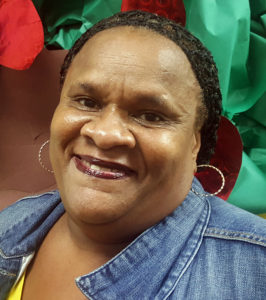BEHAVIORAL HEALTH NEWS
As baby boomers, many of whom experimented with drugs in the 1960s and 1970s, head towards their senior years, the number of older Americans with substance use disorders is growing dramatically and with it the need for specialized treatment. Odyssey House’s ElderCare program has focused on the special needs of this population for more than 15 years, both by establishing dedicated residential and outpatient services and, more recently, developing a peer-run, community-based mentoring program.
Growing Demand for Services
Older adults represent one of the fastest growing segments of the US population in need of treatment for substance use disorders (SUD). The National Survey on Drug Use and Health found that among adults aged 50 to 64, the rate of current illicit drug use increased from 2.7 percent in 2002 to 6.0 percent in 2013. Additionally, Emergency Department (ED) admissions for illicit drugs and alcohol have been steadily increasing: from 2004 to 2010, the number of ED visits for drug use and misuse has grown 187 percent for adults ages 55-64 and 104 percent for those ages 65 and older.
The Substance Abuse and Mental Health Services Administration (SAMHSA) expects the number of adults aged 50 and older needing SUD treatment to double by 2020, from 2.8 million (2002 to 2006 annual average) to 5.7 million. The increase in substance abuse among older adults has led to a dramatic rise in the number admitted into treatment: substance abuse treatment admissions of individuals aged 50 or older increased by nearly 50 percent between 2004 and 2009 (Center for Behavioral Health Statistics and Quality, 2012).
The above data, coupled with national surveys that show older adults experience increased depression, isolation, and chronic medical conditions, point to the need for services that are age specific and address the unique physical, psychological, and social changes that may occur during this life stage.
Track Record in Treating Senior Substance Abusers
Odyssey House has an extensive track record in meeting the needs of this overlooked and underserved population. In 1997, we created the first-ever residential treatment program dedicated to treating older substance abusers, known as ElderCare. Since its inception, Odyssey House has increased capacity from 15 to 68 beds, reflecting the evergrowing demand for treatment among older adults.
While enrolled in the ElderCare program, residents receive specialized services and supports in addition to SUD treatment designed to help them to function independently within the community, such as life skills training, entitlements assistance, internal medicine, dentistry and psychiatry. Health care services are provided on-site at the Manor Family Center in East Harlem, where we also employ a geriatric social worker to work with our seniors to identify behavioral health care needs and develop a plan to address them.
In 2004, Odyssey House expanded services to include an outpatient SUD treatment track specifically for older adults. Because many elderly people are at risk of being cut off from their communities as they age, the treatment priorities of the ElderCare Outpatient Program, located on Southern Boulevard in the Bronx, are to encourage older people to develop a social support network among their peers in recovery; provide them with individual and group therapy; and visit them in their homes as necessary. Counselors trained in geriatric care develop individualized treatment plans incorporating age-related individual and group therapies targeting symptoms of depression and anxiety, bereavement counseling and life planning, and access to primary medical care.
To date, Odyssey House has served well over 2,000 older adults in residential and outpatient settings, and serves an average of 130 ElderCare clients annually. ElderCare consistently operates at full capacity and has a waiting list, reflecting the program’s appeal to a growing group of consumers as well as the tremendous need in the community.
Our residents are often the highest users of Medicaid services due to multiple risk factors: active SUD, cooccurring mental health disorder, (several) chronic illnesses, and homelessness. Forty-three percent have a primary medical diagnosis of hypertension, 20 percent are HIV+, 15 percent have asthma, and 10 percent have heart problems. Alcohol is the most common primary substance of abuse, 38 percent, although heroin and crack/ cocaine follow closely behind, 30 percent and 26 percent, respectively. Almost 68 percent list two or more substances of abuse at admission.
Building On Treatment: Peer Mentoring Network for Elders in Early Recovery
In Summer 2014, Odyssey House received a $445,000 grant from the New York State Department of Health to implement a peer mentoring track for older adults (Serving Older Adults Recovery System, or SOARS), based out of the Bronx-based Outpatient Services program. SOARS will allow Odyssey House to provide case management services and improve access to community-based recovery resources for up to 90 ElderCare clients over 14-16 months.
SOARS will deliver a continuum of support services for older adults utilizing both intensive case management and peer-based recovery coaching. Odyssey House case managers will work one-on-one with clients as they transition out of residential treatment, connecting them to community -based services to help them remain out of institutional care. In addition, clients will be paired with a volunteer Recovery Coach, who will serve as a peer mentor to assist in identifying and engaging in community-based recovery supports.
The goal of SOARS is to facilitate and expand older adults’ access to community-based Long Term Services and Supports (LTSS) and ongoing support through the utilization of intensive case management and peer recovery coaching. The expected outcomes from this project are to: keep older adults residing in their homes in the community; increase engagement in the recovery process; improve retention; reduce depression and drug use during and after treatment; and improve social connectedness, quality of life, and self-image.
Reference: Center for Behavioral Health Statistics and Quality (2012, January 12). Older Adult Substance Abuse Treatment Admissions Have Increased; Number of Special Treatment Programs for This Population Has Decreased. Data Spotlight. http://www.samhsa.gov/ data/spotlight/WEB_SPOT_043/ WEB_SPOT_043.pdf
 Good morning. My name is Alfred, I am 61 years old, and a client in the ElderCare program. Fifteen months ago I came to Odyssey House as a longtime addict facing, in what time I had left, a life of loneliness and poor health. In two days, I will complete treatment and begin my new life in recovery, a healthier, happier, and more humble man.
Good morning. My name is Alfred, I am 61 years old, and a client in the ElderCare program. Fifteen months ago I came to Odyssey House as a longtime addict facing, in what time I had left, a life of loneliness and poor health. In two days, I will complete treatment and begin my new life in recovery, a healthier, happier, and more humble man.




 For more than two decades, George Rosenfeld has helped lead and shape Odyssey House. His visionary and compassionate public service leadership as Chairman of Odyssey House (2002–2012) and then as Chairman of Odyssey Foundation has helped save the lives of thousands of men and women suffering from substance use and mental health disorders.
For more than two decades, George Rosenfeld has helped lead and shape Odyssey House. His visionary and compassionate public service leadership as Chairman of Odyssey House (2002–2012) and then as Chairman of Odyssey Foundation has helped save the lives of thousands of men and women suffering from substance use and mental health disorders. Helping women and families rebuild their lives is a priority. Our gender-specific treatment programs for
Helping women and families rebuild their lives is a priority. Our gender-specific treatment programs for  We created the Odyssey House
We created the Odyssey House 
 A fourth grade class in Queens shared their holiday spirit with our ElderCare program this holiday season. As part of a lesson on kindness, teacher April Scott and her students created and delivered holiday cards for our clients. Ms. Scott explains:
A fourth grade class in Queens shared their holiday spirit with our ElderCare program this holiday season. As part of a lesson on kindness, teacher April Scott and her students created and delivered holiday cards for our clients. Ms. Scott explains: In 2014, Sheryl, 53, was early in her recovery. She had recently completed a rehabilitation program and, though she felt good about her new life, she knew from past experiences that she needed the support of peers who understand the complexities that come from struggling with an addiction for over 30 years. As an older adult who had been addicted to crack cocaine for so long, Sheryl felt that the challenges she faced were unique and needed to be treated as such.
In 2014, Sheryl, 53, was early in her recovery. She had recently completed a rehabilitation program and, though she felt good about her new life, she knew from past experiences that she needed the support of peers who understand the complexities that come from struggling with an addiction for over 30 years. As an older adult who had been addicted to crack cocaine for so long, Sheryl felt that the challenges she faced were unique and needed to be treated as such.